.webp)
eCommerce in 2025 demands intelligence that can act on its own.
Modern consumers no longer settle for generic shopping experiences. They expect hyper-personalization, instant answers, and seamless order flows across every channel. Manual tools simply won’t cut it anymore.
For businesses, that means competing not just on product or price, but on intelligence. This is where AI agents come in. AI agents are autonomous digital assistants capable of analyzing data, making decisions, and executing tasks in real time.
They adapt to customer behavior, forecast demand shifts, optimize campaigns, and even coordinate with other systems, all without constant human intervention. In short, they don’t just assist; they drive outcomes.
In this post, we're sharing the 5+ must-have AI assistants that will separate the industry leaders from the laggards in 2025.
Let’s dive right in.
Success in 2025 won’t come from guesswork. It will come from AI assistants that turn raw data into decisions, personalize every customer touchpoint, and remove friction from the buying journey. These 7 AI agents are built to solve such critical pieces of the eCommerce puzzle:
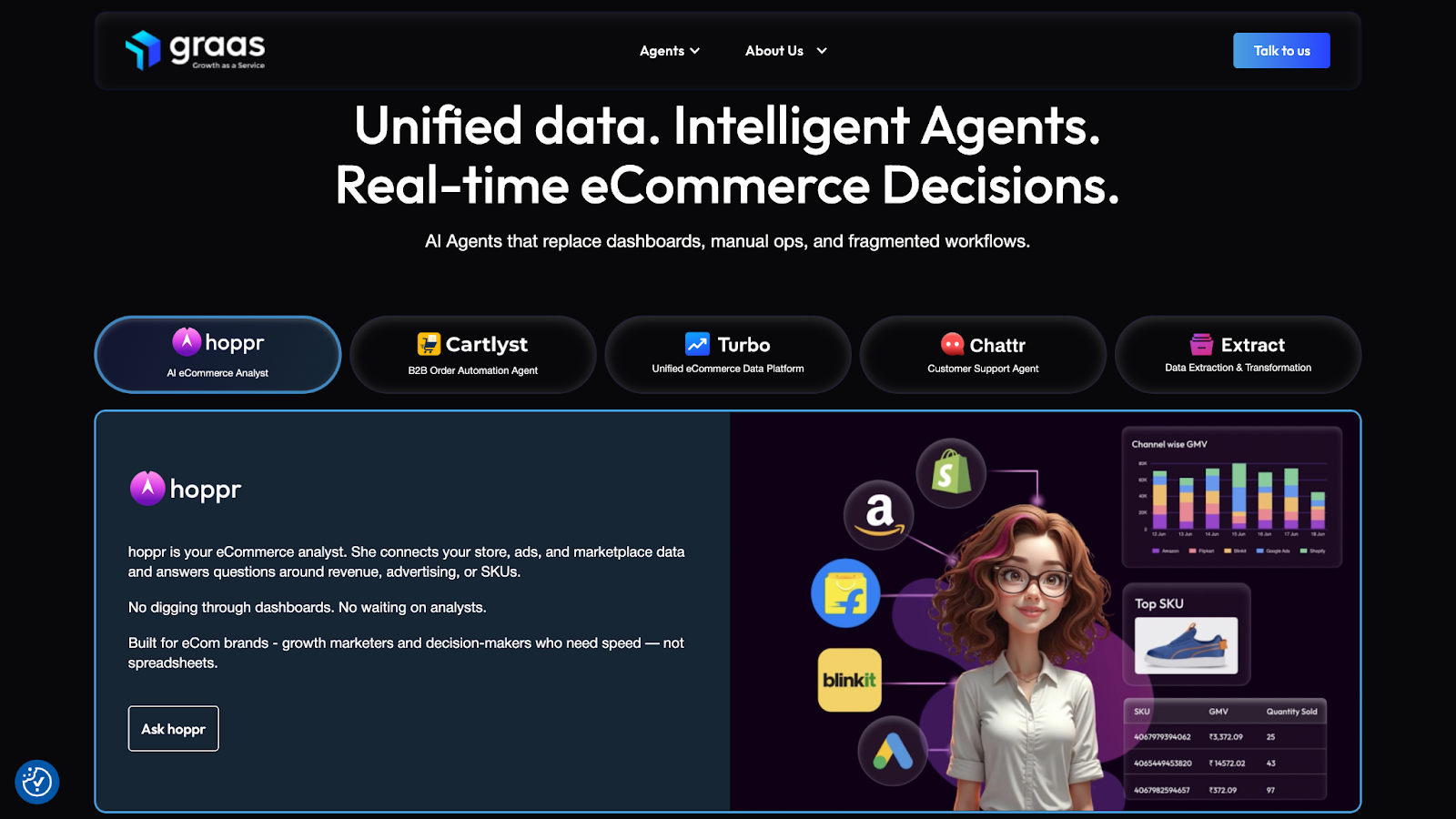
Hoppr is built to help eCommerce brands make sense of their numbers. It unifies store, ads, and marketplace data into one intelligence layer, surfacing the signals that usually get lost in spreadsheets or dashboards. By consolidating fragmented data, it gives brands a single view of what’s driving revenue.
More importantly, Hoppr doesn’t stop at reporting, it identifies where the next wave of growth will come from. The platform turns insights into revenue-ready decisions like spotting breakout products, uncovering winning campaigns, or highlighting overlooked segments.
Key features of Hoppr include:
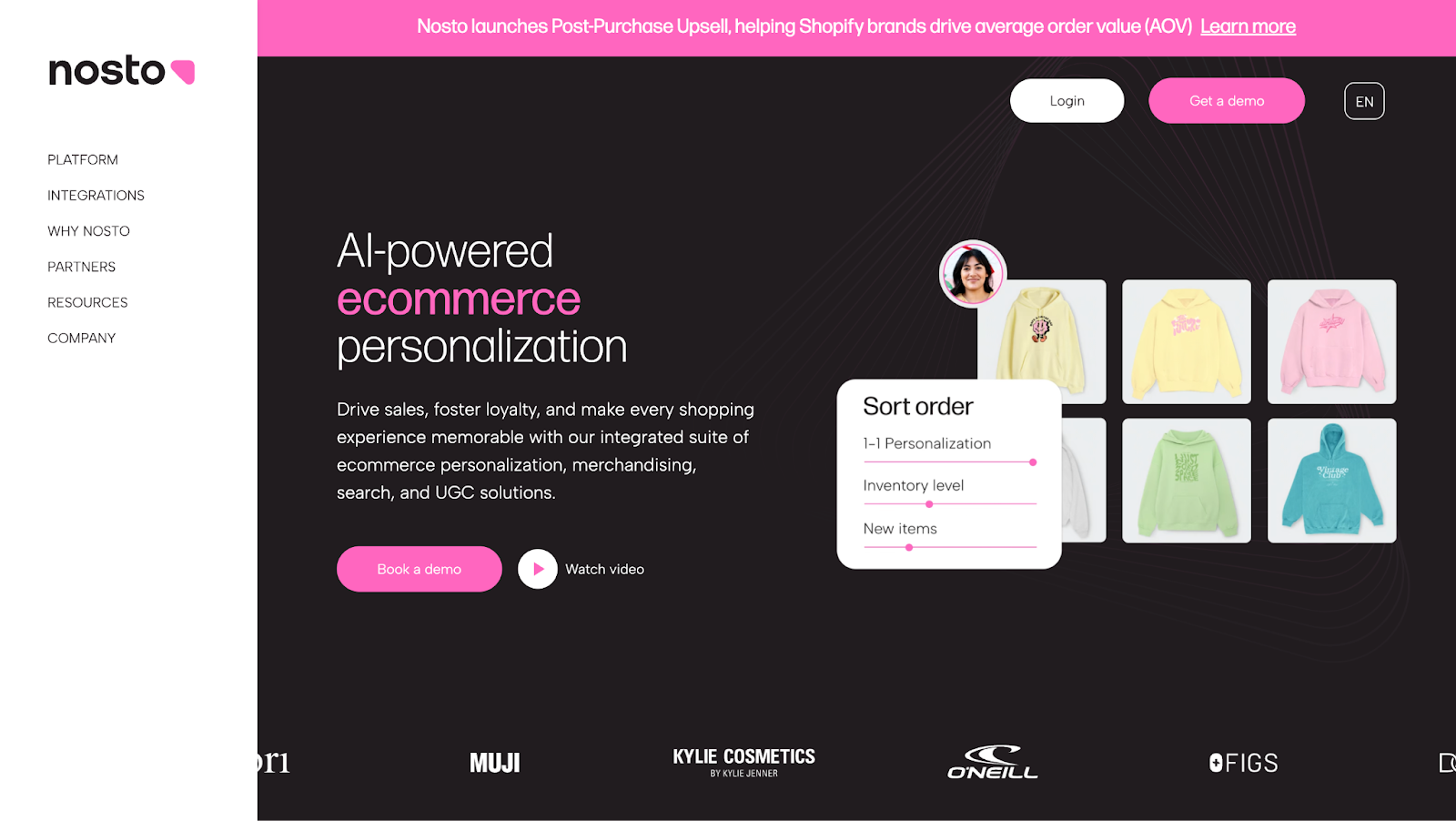
Nosto is built to take personalization in eCommerce to the next level. Instead of guessing what shoppers want, it studies their behavior in real time and delivers tailored experiences across multiple touchpoints like product recommendation, targeted emails, or mobile campaigns. Every recommendation feels relevant because it’s driven by live data, not static rules.
For eCommerce teams, that means two big wins: happier customers and higher conversions. Nosto helps you build loyalty by showing shoppers the products they’re actually looking for, while reducing friction in the buying journey. The result? More engagement, bigger baskets, and customers who keep coming back.
Key features of Nosto include:
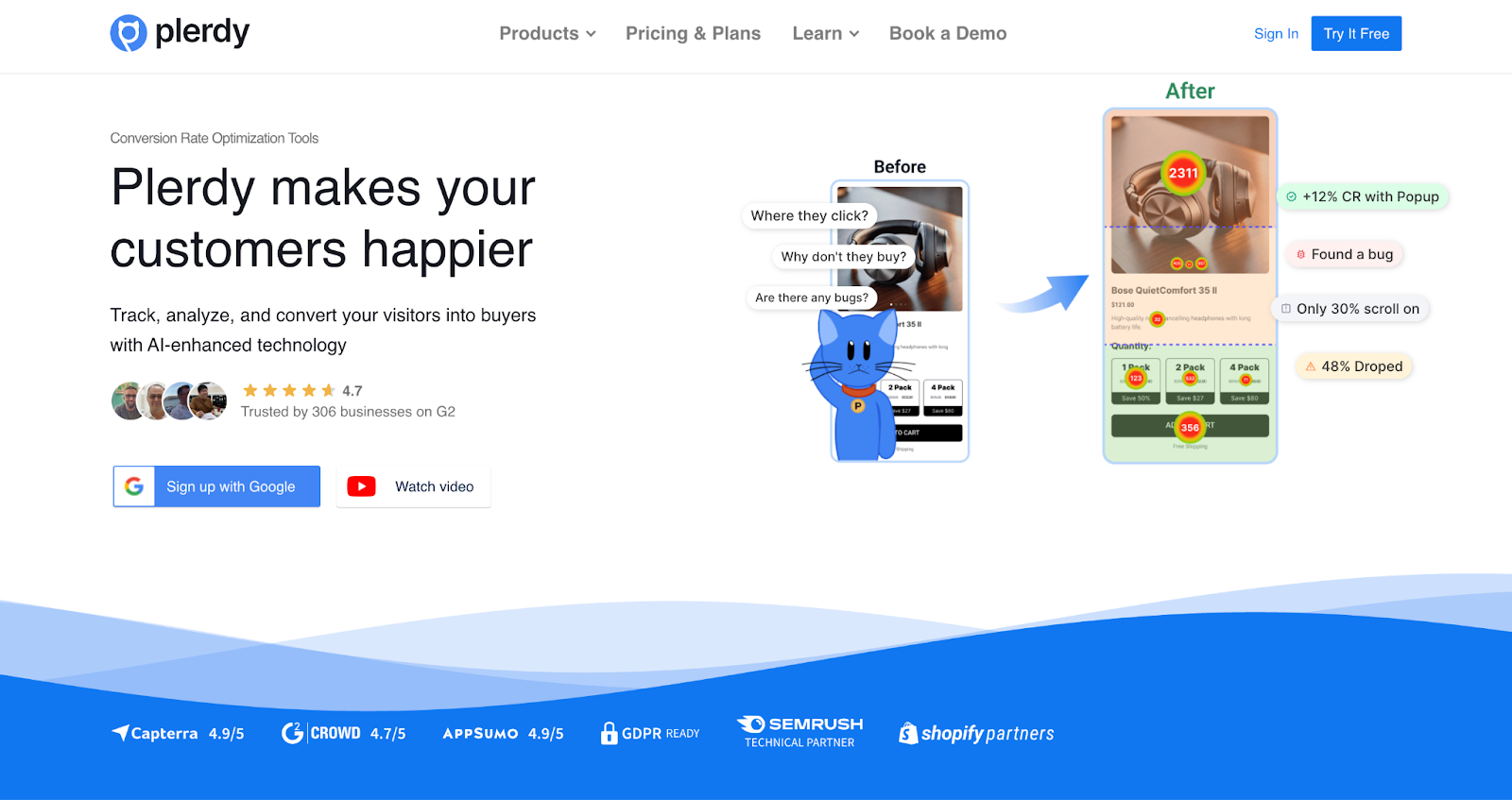
Plerdy is like having a CRO coach built right into your site. It tracks how shoppers move through your store, using analytics and heatmaps to show where they click, where they drop off, and where friction gets in the way. What looks like complicated user behavior gets turned into clear, actionable insights you can actually use.
For growing brands, that means no more guessing why sales slip through the cracks. Plerdy points out the leaks in your funnel and suggests the smartest fixes, like tweaking UX or smoothing out the checkout flow. It helps build an effortless shopping journey for customers alongside a healthy revenue stream for businesses.
Key features of Plerdy include:
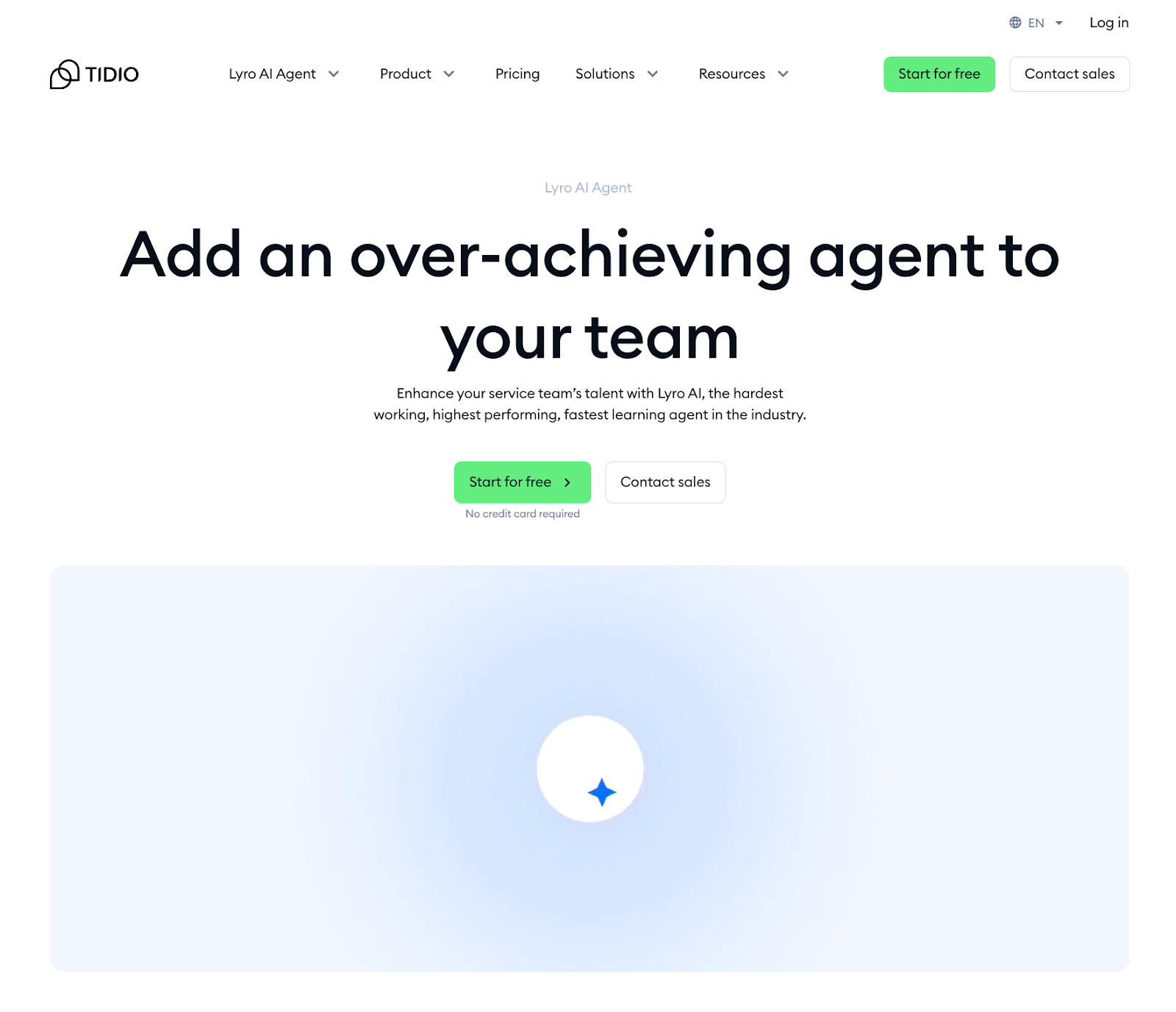
Lyro is an AI chatbot that makes customer conversations feel effortless. Using natural language processing, it understands the context of questions across products, orders, or everyday FAQs and delivers accurate, helpful answers in real time.
For eCommerce brands, Lyro works like a support agent that’s available 24/7. With Lyro, customers don’t wait around for help and human agents get to focus on the complex cases that really need attention. The payoff is faster responses, happier shoppers, and a leaner support workload.
Key features of Lyro include:
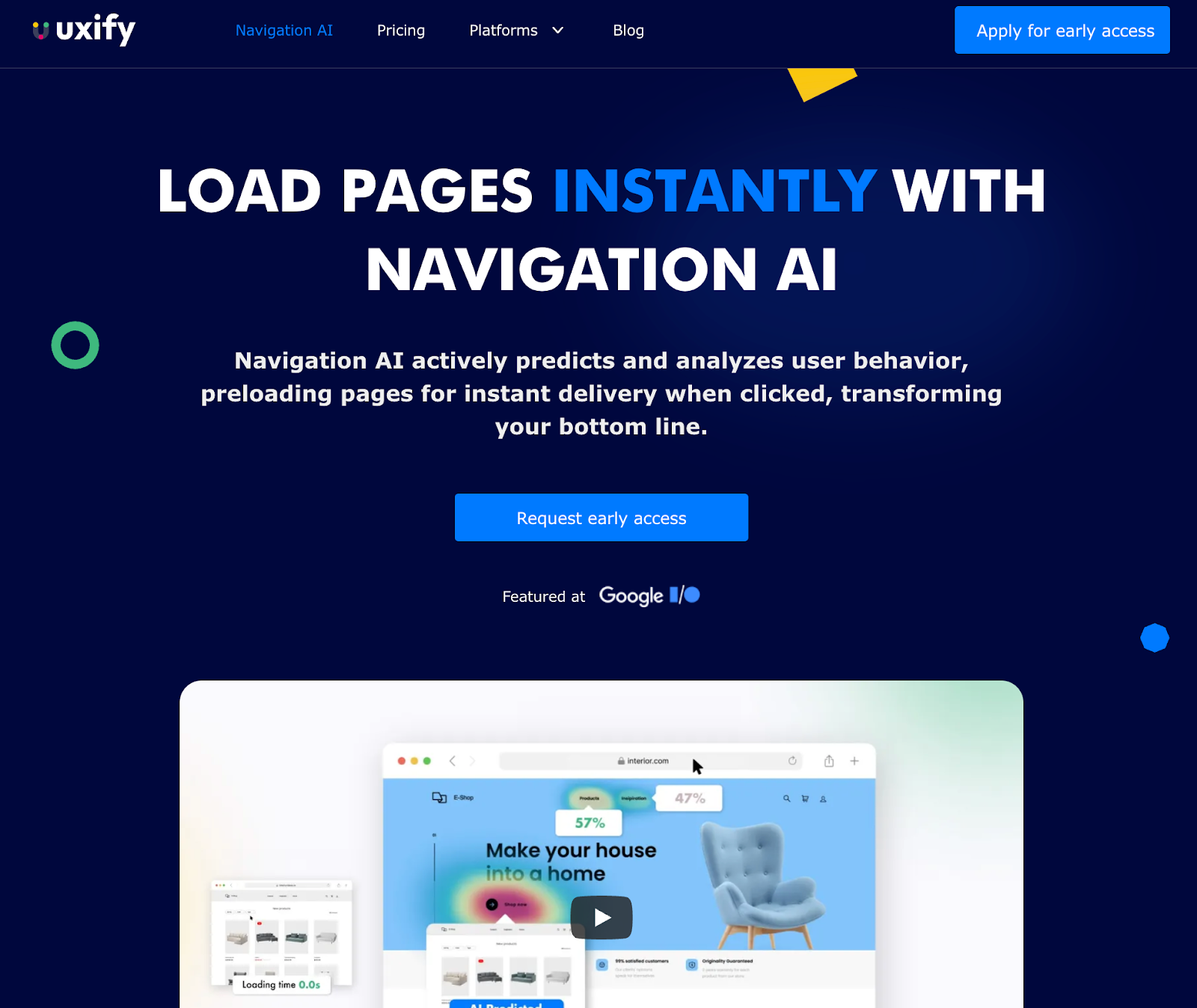
Navigation AI by UXify focuses on one of the biggest conversion killers: slow browsing. It predicts where a shopper is likely to go next and pre-loads those pages in the background, so every click feels instant and seamless.
For eCommerce stores, that speed pays off. Faster navigation keeps customers engaged, encourages them to explore more products, helps complete purchases without friction, and removes the frustration that often causes drop-offs.
Key features of Navigation AI include:

Buffer’s AI assistant makes social media a whole lot easier. It helps you brainstorm ideas, write content, and schedule posts at the times your audience is most likely to engage.
For eCommerce teams, that consistency is gold. It means you can stay visible on the channels that drive awareness and sales, without losing hours each week to manual posting. Buffer keeps your social strategy both efficient and effective, so every post works in favor of your brand.
Key features of Buffer AI Assistant include:
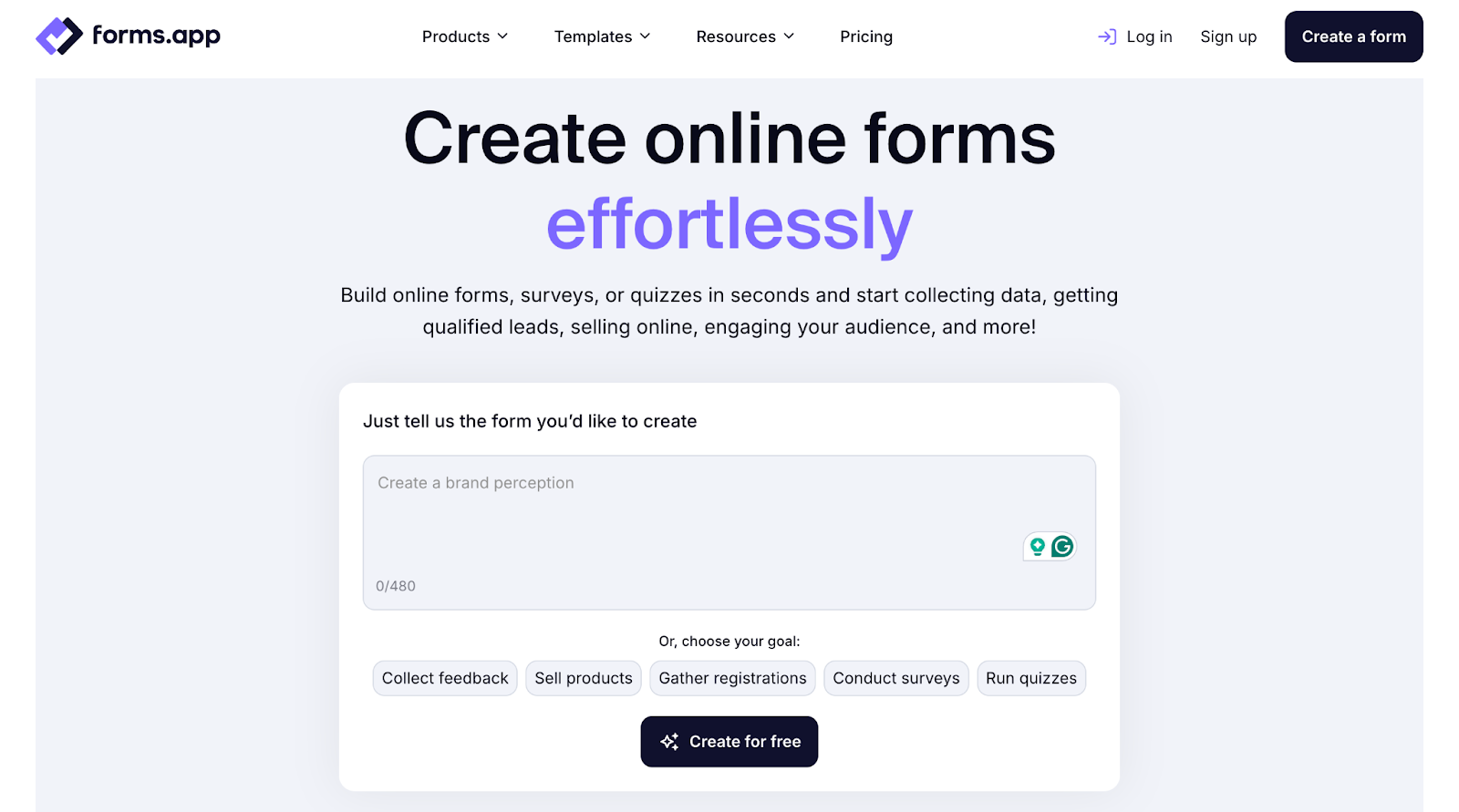
Form.apps makes capturing leads a whole lot convenient. This tool facilitates AI-powered forms, quizzes, and surveys that help brands collect customer insights in a way that feels engaging rather than intrusive. Every interaction is designed to be quick, smart, and tailored to the shopper’s journey.
So, eCommerce businesses can turn casual visitors into qualified leads with less friction. Form.apps makes data collection feel seamless, fueling the personalization needs of present and future sales and marketing campaigns.
Key features of Form.apps include:
AI assistants are quickly moving from add-ons to essentials.
Each one has its place in the eCommerce funnel. Some of them drive acquisition with smarter insights or unlock conversion by optimizing CX, and others shape experiences through personalization and strengthen retention.
The real opportunity lies in combining them. Platforms with a multi-agent approach like Grass, offer assistants that cover experience, acquisition, conversion, and retention parts of the funnel, creating an ecosystem where every touchpoint is intelligent and interconnected.
eCommerce in 2025 demands intelligence that can act on its own.
Modern consumers no longer settle for generic shopping experiences. They expect hyper-personalization, instant answers, and seamless order flows across every channel. Manual tools simply won’t cut it anymore.
For businesses, that means competing not just on product or price, but on intelligence. This is where AI agents come in. AI agents are autonomous digital assistants capable of analyzing data, making decisions, and executing tasks in real time.
They adapt to customer behavior, forecast demand shifts, optimize campaigns, and even coordinate with other systems, all without constant human intervention. In short, they don’t just assist; they drive outcomes.
In this post, we're sharing the 5+ must-have AI assistants that will separate the industry leaders from the laggards in 2025.
Let’s dive right in.
Success in 2025 won’t come from guesswork. It will come from AI assistants that turn raw data into decisions, personalize every customer touchpoint, and remove friction from the buying journey. These 7 AI agents are built to solve such critical pieces of the eCommerce puzzle:

Hoppr is built to help eCommerce brands make sense of their numbers. It unifies store, ads, and marketplace data into one intelligence layer, surfacing the signals that usually get lost in spreadsheets or dashboards. By consolidating fragmented data, it gives brands a single view of what’s driving revenue.
More importantly, Hoppr doesn’t stop at reporting, it identifies where the next wave of growth will come from. The platform turns insights into revenue-ready decisions like spotting breakout products, uncovering winning campaigns, or highlighting overlooked segments.
Key features of Hoppr include:

Nosto is built to take personalization in eCommerce to the next level. Instead of guessing what shoppers want, it studies their behavior in real time and delivers tailored experiences across multiple touchpoints like product recommendation, targeted emails, or mobile campaigns. Every recommendation feels relevant because it’s driven by live data, not static rules.
For eCommerce teams, that means two big wins: happier customers and higher conversions. Nosto helps you build loyalty by showing shoppers the products they’re actually looking for, while reducing friction in the buying journey. The result? More engagement, bigger baskets, and customers who keep coming back.
Key features of Nosto include:

Plerdy is like having a CRO coach built right into your site. It tracks how shoppers move through your store, using analytics and heatmaps to show where they click, where they drop off, and where friction gets in the way. What looks like complicated user behavior gets turned into clear, actionable insights you can actually use.
For growing brands, that means no more guessing why sales slip through the cracks. Plerdy points out the leaks in your funnel and suggests the smartest fixes, like tweaking UX or smoothing out the checkout flow. It helps build an effortless shopping journey for customers alongside a healthy revenue stream for businesses.
Key features of Plerdy include:

Lyro is an AI chatbot that makes customer conversations feel effortless. Using natural language processing, it understands the context of questions across products, orders, or everyday FAQs and delivers accurate, helpful answers in real time.
For eCommerce brands, Lyro works like a support agent that’s available 24/7. With Lyro, customers don’t wait around for help and human agents get to focus on the complex cases that really need attention. The payoff is faster responses, happier shoppers, and a leaner support workload.
Key features of Lyro include:

Navigation AI by UXify focuses on one of the biggest conversion killers: slow browsing. It predicts where a shopper is likely to go next and pre-loads those pages in the background, so every click feels instant and seamless.
For eCommerce stores, that speed pays off. Faster navigation keeps customers engaged, encourages them to explore more products, helps complete purchases without friction, and removes the frustration that often causes drop-offs.
Key features of Navigation AI include:

Buffer’s AI assistant makes social media a whole lot easier. It helps you brainstorm ideas, write content, and schedule posts at the times your audience is most likely to engage.
For eCommerce teams, that consistency is gold. It means you can stay visible on the channels that drive awareness and sales, without losing hours each week to manual posting. Buffer keeps your social strategy both efficient and effective, so every post works in favor of your brand.
Key features of Buffer AI Assistant include:

Form.apps makes capturing leads a whole lot convenient. This tool facilitates AI-powered forms, quizzes, and surveys that help brands collect customer insights in a way that feels engaging rather than intrusive. Every interaction is designed to be quick, smart, and tailored to the shopper’s journey.
So, eCommerce businesses can turn casual visitors into qualified leads with less friction. Form.apps makes data collection feel seamless, fueling the personalization needs of present and future sales and marketing campaigns.
Key features of Form.apps include:
AI assistants are quickly moving from add-ons to essentials.
Each one has its place in the eCommerce funnel. Some of them drive acquisition with smarter insights or unlock conversion by optimizing CX, and others shape experiences through personalization and strengthen retention.
The real opportunity lies in combining them. Platforms with a multi-agent approach like Grass, offer assistants that cover experience, acquisition, conversion, and retention parts of the funnel, creating an ecosystem where every touchpoint is intelligent and interconnected.